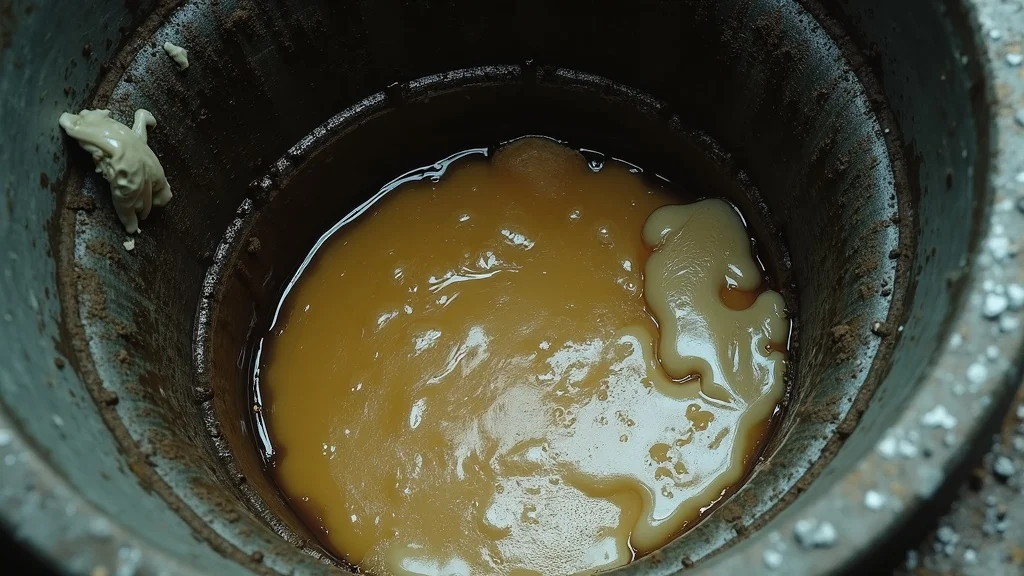Startling Fact: Over 80% of industrial facilities struggle with meeting wastewater discharge limits, risking costly fines and operational shutdowns if compliance issues are not promptly addressed. Wastewater compliance consulting is the essential step businesses must take to navigate complex regulatory landscapes and avoid such penalties.
Operating within strict environmental regulations, plant managers and Environmental Health and Safety (EHS) professionals face growing pressure from sanitation districts and regulatory bodies. Understanding the process—from receiving compliance notices to implementing effective solutions—is critical for maintaining uninterrupted operations. This article delivers expert insights from Steve Manii of CSI Environmental, Inc., guiding you through how environmental consultants help businesses decode lab data, liaise with regulators, and design cost-effective wastewater treatment plans.
Startling Facts About Wastewater Compliance Consulting and Its Critical Role in Industrial Operations
Meeting wastewater discharge requirements is not just a regulatory formality—it is a crucial operational priority. Research shows that many facilities receive compliance violations during regular composite sampling, an integral part of wastewater monitoring. These violations often involve contaminants such as sulfides, fats, oils, grease, total suspended solids (TSS), chemical oxygen demand (COD), and biological oxygen demand (BOD). Ignoring these issues can escalate into fines, negative public exposure, or even forced shutdowns.
Wastewater compliance consulting plays a vital role in industrial sectors by providing expert guidance on navigating environmental regulations, interpreting lab results, and implementing corrective measures. This consulting service helps facilities proactively manage their waste streams, improve water quality management, and avoid costly regulatory penalties. In a landscape where compliance standards vary by county and municipality, consulting ensures that businesses stay ahead of stringent local requirements that often surpass federal baselines.
For example, a typical compliance scenario begins when a facility receives a written warning from a regulatory agency due to elevated sulfide levels during a monthly 24-hour composite sample. Without expert intervention, companies may find it challenging to devise effective, lasting solutions. Consultants like Steve Manii and CSI Environmental come in to assess, recommend, and help implement remediation tactics, safeguarding business continuity and environmental health.
Understanding Wastewater Compliance Consulting: Definitions and Key Concepts
Wastewater compliance consulting refers to specialized advisory services that assist industrial entities in meeting wastewater discharge permits governed by laws such as the Clean Water Act. These consultants analyze water quality data, identify root causes of violations, and develop strategies incorporating chemical treatments, equipment upgrades, and operational changes. Their role extends beyond advisory—often acting as liaisons with regulatory authorities to streamline compliance.
At its core, wastewater compliance covers parameters such as sulfide concentrations, TSS, COD, BOD, and pH levels. Elevated values outside permitted limits trigger compliance actions. Consultants interpret these complex metrics and help facilities understand their discharge permits, testing schedules, and required corrective actions.

Navigating Regulatory Requirements and the Clean Water Act in Wastewater Treatment
How Local and Federal Regulations Shape Environmental Compliance
Steve Manii of CSI Environmental explains, "The Clean Water Act sets the federal baseline, but counties like LA and Riverside can impose even stricter wastewater treatment standards."
The regulatory framework governing wastewater treatment begins at the federal level with the Clean Water Act, establishing minimum discharge standards for pollutants. However, states and counties have the authority to implement more stringent regulations, enhancing protection of local water bodies. For instance, jurisdictions such as Los Angeles County and Riverside County enforce tougher limits on contaminants like sulfides and total suspended solids.
This layered regulatory environment means facilities must comply not only with federal mandates but also customized local requirements, which can vary significantly. Understanding these variances is critical for effective wastewater management. Compliance consulting helps businesses track changes in regulations and adjust operations accordingly to meet or exceed local standards.
Monthly sampling and testing by local water districts provide the data to evaluate compliance, with written notices issued upon detection of permit violations. Consultants assist companies in interpreting these regulatory signals and formulating timely responses to avoid escalating enforcement actions.
Common Compliance Issues in Wastewater Treatment and Water Quality Management
Typical Causes of Non-Compliance: Fats, Oils, Grease, COD, BOD, TSS, and pH Levels
Non-compliance often stems from elevated levels of fats, oils, and grease (FOG), chemical oxygen demand (COD), biological oxygen demand (BOD), total suspended solids (TSS), or abnormal pH readings. These indicators reflect the organic load and chemical composition of wastewater, directly impacting treatment processes downstream.
For example, pH values outside the permitted range (typically below 6 or above 9 to 10) can cause violations. Similarly, excessive TSS indicates solids that may clog treatment systems or pollute receiving waters. COD and BOD measure the amount of oxygen required to break down organic material; excessive levels signal pollution risk.
Sources of elevated sulfides may include irregular tank cleaning operations flushing sediment from the bottoms of wash tanks, as explained by Steve Manii, "Sulfides are at the bottom of these tanks, and during deep tank cleanings, they get flushed out, causing temporary spikes." Recognizing these causes helps consultants develop targeted strategies to remediate problems effectively.
The Compliance Notification Process: From Sampling to Written Warnings
Local water districts conduct routine 24-hour composite wastewater sampling, analyzing for various permit parameters. When violations occur, regulatory agencies issue written warnings specifying out-of-compliance parameters and requiring submission of a corrective action plan. This plan outlines how the business will resolve the issue and prevent recurrence.
Following the warning, retesting is mandated to confirm resolution. Persistent non-compliance triggers escalated enforcement measures, including additional warnings, fines, or potential shutdown notices. Facilities often receive direct communication via letters or emails reminding them of timelines to comply before penalties are imposed.
In some regions, such as LA County, publicly disclosing non-compliance cases in local media serves as additional motivation for companies to rapidly address violations, protecting their reputations and operational licenses.

Expert Insights: How Environmental Consultants Facilitate Wastewater Compliance Consulting
Consulting Services to Address Sulfide and Other Wastewater Treatment Challenges
Steve Manii, of CSI Environmental, states, "We offer cost-effective solutions like chlorine or hydrogen peroxide injection to neutralize sulfides before discharge."
Environmental consultants provide critical expertise for treating complex wastewater contaminants. For sulfide issues, they recommend chemical oxidation methods such as injecting 12.5% chlorine or hydrogen peroxide into effluent lines prior to discharge. These oxidizers neutralize sulfides effectively, preventing them from exceeding permit limits and causing downstream environmental harm.
Consultants assess site-specific needs, ensuring the chosen chemical treatment aligns with operational conditions and regulatory requirements. They also advise on dosing rates, equipment options, and safety considerations, ensuring treatments are both effective and cost-efficient.
Such expertise is invaluable for facilities struggling with recurring sulfide outliers or operational disruptions. By partnering with environmental consultants, businesses gain access to innovative, sustainable solutions that maintain compliance without incurring unnecessary downtime or penalties.
Equipment and Chemical Solutions for Reducing TSS, COD, and BOD in Water Treatment
Beyond chemical treatments, consultants recommend and facilitate installation of equipment designed to reduce suspended solids and organic load. Technologies such as sedimentation tanks, clarifiers, filtration units, and chemical dosing systems target Total Suspended Solids (TSS), Chemical Oxygen Demand (COD), and Biological Oxygen Demand (BOD) reduction.
These treatments lower pollutant concentrations prior to wastewater discharge, ensuring compliance with permit limits. Chemical coagulants, flocculants, and oxidizers may be utilized alongside mechanical processes to enhance treatment efficiency. Customized equipment solutions are designed to match facility size, contaminant profile, and budget constraints.
By employing these combined approaches, many CSI Environmental clients report TSS reductions of 90-95%, with COD and BOD cuts ranging between 50% and 85%, depending on organic matter characteristics. These improvements not only maintain regulatory compliance but also reduce wastewater surcharges, offering considerable operational cost savings.

Roles and Responsibilities: Who Handles Wastewater Compliance in Companies?
Environmental Health & Safety Managers, Maintenance Teams, and Plant Managers
Responsibility for wastewater compliance varies by company but typically involves Environmental Health & Safety (EHS) managers or supervisors, maintenance personnel, and plant managers. Often, the individual listed on the facility’s discharge permit serves as the primary compliance contact.
In many operations, the maintenance team manages wastewater treatment systems and is intimately involved in compliance efforts, while plant managers oversee operational impacts. EHS professionals may coordinate regulatory communications and compliance reporting.
Steve Manny notes, "The point person’s title varies—sometimes it’s an EHS manager, sometimes maintenance or plant manager—but our consulting services serve as a trusted partner to all, helping businesses stay compliant and prepared." Collaborative communication between these roles and environmental consultants streamlines addressing wastewater concerns.

Consequences of Non-Compliance and the Importance of Timely Action
Fines, Operational Shutdowns, and Public Disclosure of Violations
Failure to address wastewater compliance issues promptly can lead to progressive penalties. Initial warnings escalate to stringent notices, monetary fines, and potential forced shutdowns. Regulatory agencies may halt operations until observed violations are corrected, severely impacting business continuity.
Additionally, in jurisdictions like Los Angeles County, non-compliant facilities may be publicly listed in newspapers or online publications, damaging brand reputation and customer trust. Early engagement with compliance specialists mitigates these risks.
As Steve Manii emphasizes, "Ignoring compliance notices risks not only financial penalties but can jeopardize your entire operation. Timely consultation prevents escalation and protects your business reputation."

Step-by-Step Process: How to Engage with Wastewater Compliance Consulting Experts
Initial Contact, Information Gathering, and On-Site Assessment
Engaging with wastewater compliance consultants begins with a brief phone call, usually lasting 10 to 15 minutes, to outline the compliance issues. This initial conversation allows the consultant to assess the scope and feasibility of assistance.
Following this, a more detailed onsite assessment or “sidewalk” walk-through is scheduled. During the visit, consultants review operational practices, inspect treatment systems, and gather information to tailor remedial recommendations. Pre-visit preparation often involves submitting relevant documentation such as lab results and regulatory correspondence.
This structured approach enables consultants to provide practical, customized solutions and ensures efficient use of time and resources for both parties.
Required Documentation: Lab Reports, Regulatory Notices, and Surcharge Statements
To prepare for consultation, businesses should provide:
Third-party lab reports detailing wastewater composite sample results for the prior 3 to 6 months
Written compliance notices or warnings received from regulatory agencies
Surcharge statements reflecting fees assessed based on pollutant discharges
Such documents allow consultants to benchmark current discharge levels against permitted limits, analyze trends, and pinpoint abnormalities requiring corrective action. They also facilitate communication with regulators to clarify non-compliance causes and negotiate feasible solutions.
Benefits of Partnering with Environmental Consultants for Wastewater Treatment and Water Management
Achieving Compliance, Cost Savings, and Improved Environmental Impact
Engaging environmental consultants delivers multi-faceted benefits including assured regulatory compliance, significant cost reductions, and enhanced environmental protection. Effective wastewater treatment reduces surcharges and fines, while implementing sustainable practices demonstrates corporate responsibility and improves stakeholder relations.
Consultants apply decades of experience in optimizing treatment methods and upgrading equipment for maximum efficiency. Their expertise enables tailored solutions that meet unique industrial wastewater profiles, ensuring facilities remain compliant amidst evolving regulatory landscapes.
Partnering with experts like CSI Environmental not only resolves urgent compliance challenges but positions businesses for long-term operational success and environmental stewardship.
Comparison of Common Wastewater Compliance Issues, Their Causes, and Consultant Solutions | |||
Compliance Issue |
Typical Cause |
Consultant Solution |
Expected Outcome |
|---|---|---|---|
Sulfides |
Tank sediment disturbance, anaerobic decomposition |
Chlorine or hydrogen peroxide injection; oxidation treatment |
Neutralized sulfides, compliant discharge |
Total Suspended Solids (TSS) |
Poor sediment filtration, improper solids settling |
Installation of clarifiers, sedimentation tanks, filtration systems |
90-95% TSS reduction, lower surcharges |
Chemical Oxygen Demand (COD) |
High organic load, soluble and insoluble organics |
Chemical oxidation, advanced treatment, biological systems if needed |
50-85% COD reduction, improved water quality |
Biological Oxygen Demand (BOD) |
Excess organic matter, sugars in effluent |
Biological treatment, enzymatic additions, chemical oxidation |
Substantial BOD decrease, regulatory compliance |
pH |
Acidic or alkaline process effluents |
Neutralization with chemical dosing systems |
pH stabilized within permit limits |
People Also Ask: Key Questions About Wastewater Compliance Consulting
What are the main causes of wastewater non-compliance?
How does the Clean Water Act affect local wastewater regulations?
What steps should a business take after receiving a compliance notice?
How can environmental consultants help reduce wastewater treatment costs?
What documentation is needed for a wastewater compliance consultation?
Frequently Asked Questions (FAQs) on Wastewater Compliance Consulting
How often are wastewater composite samples conducted?
Composite samples are typically taken monthly by local water districts to monitor compliance with discharge permits.What happens if a business fails to comply after multiple warnings?
Repeated non-compliance can result in fines, fees, operational shutdowns, and public disclosure of violations.Can environmental consultants act as liaisons with regulatory agencies?
Yes, consultants like CSI Environmental often serve as third-party liaisons to facilitate communication and resolution.What chemical treatments are commonly used to neutralize sulfides?
Chlorine and hydrogen peroxide injections are frequently employed to oxidize and neutralize sulfides in wastewater.How much can TSS levels be reduced through consulting solutions?
It is common to achieve 90-95% reduction in TSS after implementing consultant-recommended treatments and equipment upgrades.
Key Takeaways: Essential Points on Wastewater Compliance Consulting
Wastewater compliance consulting is vital for meeting regulatory requirements and avoiding penalties.
Local regulations often exceed federal Clean Water Act standards, requiring tailored compliance solutions.
Environmental consultants provide expert guidance, chemical treatments, and equipment recommendations to address violations.
Timely response to regulatory notices can prevent escalating fines and operational disruptions.
Proper documentation and communication with consultants streamline the compliance process and improve outcomes.
Conclusion: Partner with CSI Environmental for Expert Wastewater Compliance Consulting
Steve Manii concludes, "Our goal at CSI Environmental is to help businesses achieve compliance efficiently and cost-effectively, protecting both the environment and your operations."
Get Your FREE Compliance Assessment Today
Visit https://csienvironmentalinc.com/California-Wastewater-Compliance
Call (800) 690-2436 to schedule your consultation
To further enhance your understanding of wastewater compliance consulting, consider exploring the following resources:
The U.S. Environmental Protection Agency’s (EPA) Compliance Advisors for Sustainable Water Systems Program offers no-cost technical assistance to small drinking water and wastewater systems, helping them achieve and maintain compliance with the Clean Water Act and Safe Drinking Water Act.
WaterWorkForce provides consulting solutions covering staffing, regulatory compliance, maintenance, asset management, and project management, assisting clients in overcoming operational obstacles and modernizing their approach to wastewater operations.
These resources offer valuable insights and practical solutions to help businesses navigate the complexities of wastewater compliance effectively.
 Add Row
Add Row  Add
Add 




Write A Comment